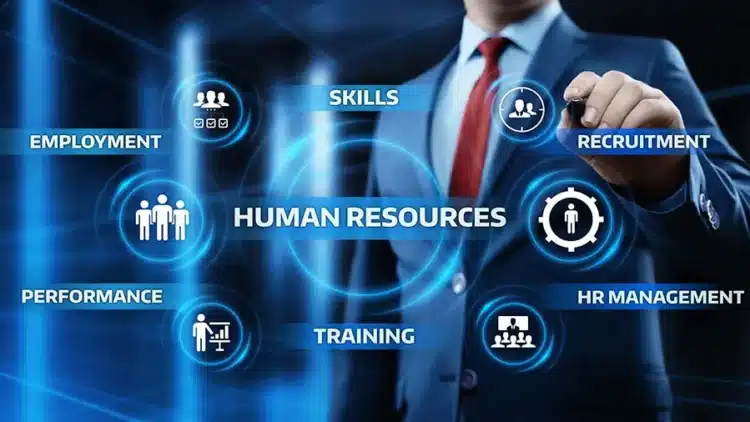In today’s fast-paced and competitive business landscape, the role of a Human resources manager has become increasingly vital. These professionals manage and develop any organization’s most valuable asset—its people. With a diverse range of responsibilities and requirements, the role of an HR manager requires a unique blend of skills and expertise.
This blog will provide a detailed overview of the human resources manager job description, outlining the essential responsibilities and requirements.
Responsibilities
1. Recruitment and Selection
One of the primary responsibilities of an HR manager is to attract and retain top talent. This involves developing effective recruitment strategies, crafting job descriptions, screening resumes, conducting interviews, and selecting the most suitable candidates. HR managers are also responsible for ensuring a smooth onboarding process for new hires.
2. Employee Relations
Maintaining positive employee relations is crucial for fostering a healthy work environment. HR managers act as mediators in conflicts and disputes, ensuring fair treatment and resolving issues promptly. They also promote open communication channels and implement employee engagement initiatives to boost morale and productivity.
3. Performance Management
HR managers are responsible for implementing performance management systems to evaluate employee performance, set goals, provide feedback, and facilitate career development. They collaborate with managers to identify training needs and design development programs that align with organizational goals.
4. Compensation and Benefits
HR managers play a vital role in designing and administering compensation and benefits programs. They conduct market research to ensure competitive salary structures and benefits packages. Additionally, they oversee payroll processing, manage employee benefits enrollment, and address any compensation-related issues.
5. Policy Development and Compliance
Human resources managers are responsible for designing and implementing HR policies and procedures under labor laws and regulations. They stay updated on labor laws, monitor compliance, and ensure that the organization operates within legal boundaries. They also handle employee documentation, such as contracts, policies, and disciplinary actions.
6. Training and Development
To nurture employee growth and enhance skills, HR managers coordinate training and development initiatives. They identify training needs, source suitable programs, and facilitate workshops or seminars. These initiatives aim to improve employee performance, enhance leadership capabilities, and foster a culture of continuous learning.

Requirements for a Human Resources Manager
1. Education and Experience
A bachelor’s degree in human resources, business administration, or a related field is typically required to pursue a career as an HR manager. However, some organizations may prefer candidates with a master’s degree or equivalent experience. Relevant work experience in HR roles, such as HR generalist or HR specialist, is highly valued.
2. Strong Interpersonal and Communication Skills
Effective communication and interpersonal skills are essential for HR managers. They must be able to interact with individuals at all levels of the organization, build relationships, and resolve conflicts. HR managers should possess excellent listening skills and the ability to convey information clearly and concisely.
3. Knowledge of Employment Laws
A deep understanding of employment laws and regulations is crucial for HR managers to ensure compliance and mitigate legal risks. They must stay updated on changes in labor laws, understand equal employment opportunity principles, and maintain confidentiality when handling sensitive employee information.
4. Problem-Solving and Decision-Making Abilities
HR managers often face complex and challenging situations that require quick and accurate decision-making. They should have strong analytical and problem-solving skills to identify issues, evaluate options, and make informed decisions. Additionally, the ability to handle sensitive and confidential information with integrity is crucial.
5. Leadership and Strategic Thinking
HR managers are responsible for leading the HR department and driving HR initiatives aligned with the organization’s strategic goals. They should have strong leadership skills, be able to motivate and inspire their team and possess a strategic mindset. HR managers must anticipate future HR needs and proactively develop strategies to meet them.
6. Human Resources Certification
Obtaining a human resources certification showcases a dedication to personal growth and boosts credibility in the industry. It gives you a competitive advantage in the job market and expands your prospects for advancement in your career. By acquiring a human resources certification, you demonstrate your expertise and commitment to excellence, making you a desirable candidate for employers and opening up new opportunities for professional growth.
Take Away
The role of a Human resources manager is multifaceted, requiring a diverse set of skills and expertise. From recruitment and employee relations to performance management and compliance, HR managers create a productive and harmonious work environment. By fulfilling these responsibilities and possessing the necessary qualifications, experience, and skills, HR managers contribute significantly to the success and growth of an organization.
















